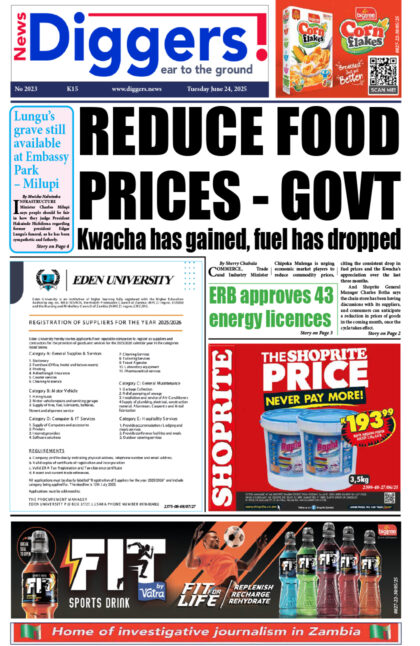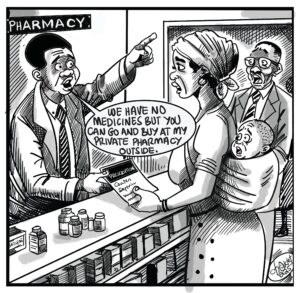Economist Chibamba Kanyama says Zambia’s chances of getting an International Monetary Fund (IMF) bailout programme remain a far-fetched dream.
On Wednesday, German Ambassador to Zambia Achim Burkart said the high risk of debt distress and absence of an IMF-backed programme had limited donors’ ability to help Zambia.
Commenting on the German Envoy’s remarks, Kanyama said Zambia’s chances of clinching a much-needed bailout package for the country’s balance of payments support had all but disappeared as the Zambian government would have received an official response from the Fund on its position by now.
“Looking at the well-crafted statement by the International Monetary Fund following their recent Staff Visit to Zambia, it looks a far-fetched dream Zambia will be on a bail out programme soon, unless we take drastic measures to improve the debt sustainability ratios. The statement implies we have reached those levels our country’s debt position would not accommodate IMF money. This is because IMF money is not free in itself, and the Fund is not only in the business of lending money to bail out countries, but to make money, too,” Kanyama said in an interview.
“We are also approaching elections in 2021, making it very hard for government itself to seek an IMF programme. Even though there has been much talk about engaging the IMF for a programme, I am not sure we have even applied for that, I have not seen that application. It is one thing to tell the market we are engaging the IMF and another to actually make such an application. I do not even think our application can be handled via the media; by now, we would have read of an official response from the IMF about its position regarding our application for a programme. Given this information, I can as well speculate that an IMF programme cannot be expected in the short-run if ever we get into it.”
He observed that Zambia’s credit rating remained in negative territory, adding that the country would be pay a premium if it went back to access non-concessional loans on the open financial market.
“If we do not get external support as quickly as possible, Zambia will be forced to go to the open financial market to get additional non-concessional lending. This will be suicidal for us given the current global pressures that are driving interest rates over the roof! Zambia’s credit rating is currently near negative, meaning it will pay a premium should it go back to the open market,” Kanyama said.
He, however, expressed confidence that a lot countries were willing to support Zambia, but noted that they were not sure if the funds would be prudently applied in a manner that met their expectations.
“The position of the German Ambassador is not new. I had months ago indicated in your same newspaper a number of countries looked forward to an IMF programme for them to support Zambia’s budget. This is the very reason we have been saying even if the IMF support may be small, and could be as low as US $750 million, if given, Zambia would still benefit from other concessional bilateral and multilateral lenders. I am very sure many countries truly want to support our country and we need that cash injection. They are, however, not sure how the funds will be applied in a manner that meets their expectations, hence their desire for a programme that should put Zambia on a sustainable and transparent growth path,” said Kanyama.
“Let’s admit it, it’s currently difficult to cure our economy without a strong financial injection from concessional lenders. Firstly, we need to just stabilize our economy from inflationary pressures and the effects of climate change. Secondly, we have debt repayments so huge our budget is stressed, unable to meet social sector needs and the smooth operations of government. Thirdly, we need to restructure our external debts and pacify anxieties brewing among the bond holders, some of them speculating on Zambia’s capacity to make the bullet payments when they fall due.”



















